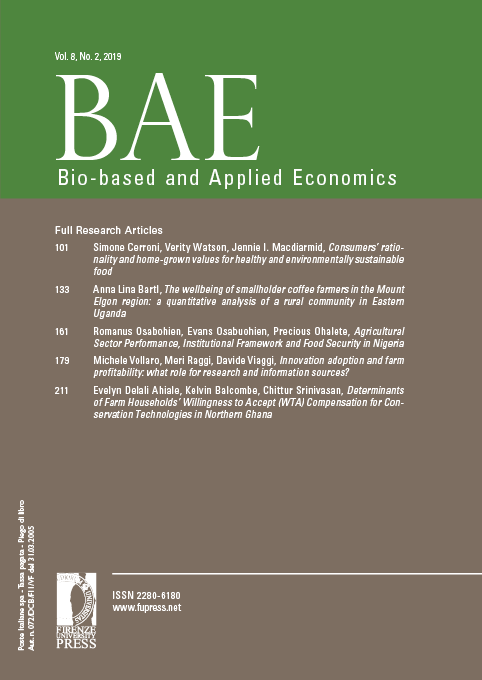The wellbeing of smallholder coffee farmers in the Mount Elgon region: a quantitative analysis of a rural community in Eastern Uganda
Published 2020-05-20
Keywords
- Composite Indicator,
- Mount Elgon,
- smallholder coffee farmers,
- Uganda,
- wellbeing
How to Cite
Abstract
For many smallholder farmers in the Mount Elgon region of Uganda, Arabica coffee cultivation is the major income-generating activity. Although it is widely known that smallholder coffee farmers often live under conditions that barely assure their survival, research to date has failed to examine the composition and distribution of wellbeing within this group. In the present study, a composite indicator of wellbeing is created using information collected from interviews with 431 coffee-cultivating households to investigate wellbeing in the Mount Elgon region of Uganda. From results of an explorative Principal Components Analysis, the factors of trust, security, housing, and landholding, covering a total of ten indicators, provided a comprehensive measure of wellbeing, explaining 81.20% of the total variance. The results show substantial differences in wellbeing within the sub-counties of Bulegeni, Simu, and Namisuni, and even greater differences between these sub-counties. These differences are explained primarily by the physical wellbeing factors of housing and landholding. Efforts to improve the quality of housing, particularly in Namisuni and Bulegeni, for instance, by providing improved access to financial services, construction loans, or subsidized prices for bricks and other construction materials, as well as official land registration in all three sub-counties could improve the wellbeing of households in this area.






